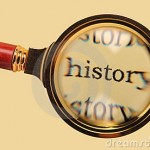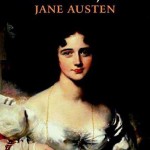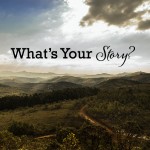In University, I majored in English. I loved the Victorian Era, with Pride and Prejudice being one of my favourites. Every time I watch, “You’ve Got Mail”, I begin to laugh as Tom Hanks’ character tries to impress Meg Ryan by making it through the first couple of chapters and then he challenges her with a reference to Mr. Darcy near the end of the movie. My minor, however was in History. I’m not sure why and my marks certainly reflected my lack of appreciation or understanding of the importance in knowing World History. To this day, I cannot match dates to important world events. I always feel less than intelligent when conversation at social events turns to historical perspectives and as you can probably guess, when given the choice in Trivial Pursuit, I avoid the yellow pie piece every chance I get.
So, it was with some reservations that I attended the One Man Show ~ BOOM at the Grand Theatre last week, knowing that it was going to be a historical journey from 1945 – 1970.
But within minutes, I was drawn into the production and the historical importance of these events! Rick Miller masterfully took three seemingly unrelated story lines and through music, powerful visuals and breath taking technological effects wove them into the most amazing history lesson. 
It was once again a reminder about the power of story and personal connection to that story. Miller took monumental events, such as the assassination of JFK, the Berlin Wall, the space race and Apartheid and he shared how they affected the lives of the characters in his story.
I wonder if History lessons in University had been taught that way, if I would have been more engaged?
Do you use the power of story to engage your students?
Come write with me…..



Your students were very lucky to have you and your love of story woven into so much of what you taught. I may need to call on your expertise as we continue to support teachers in incorporating all 4 strands of the Arts curriculum.
How does anyone get away from stories? It’s the most fun we have at family gatherings retelling and retelling the stories that made us a family. We’ve all heard them 100x’s and yet we tell and listen to them over and over again. As a teacher who came out the the theatre world, the “story” was always the thing around any lesson regardless of the subject. Childrens’ books always the jumping off point for writing or an exploration in some drama presentation.
Combining the story with history I’d encourage everyone to read Ken Follett’s Trilogy as it follows 5 families through the events from before WW1 through to modern day. If you love those then also get Follett’s Pillars of the Earth / Winter of the World as he follows 5 families again as they build cathedrals in early England’s history. Very engaging books (and listening) if you prefer audio books.
But I also think we are responsible for our own stories. Many a powerful story gets ended far too quickly when we make decisions about friends, colleagues or even family members. What stories will never be told because of a mis-understanding, a harsh word or an unforgiving spirit?
Annette, thanks for the reminder that we ALL need to use the power of story to engage others!
I recently listened to one of our teachers share the work she was doing in a Science network. She is creating case studies for her students to work through based on real events in history that help her students to learn the curriculum. Most recently the case study was based on what happened in Walkerton to learn about water systems. The students are engaged in inquiry and can’t to get more information each day to solve the case. They are also using events from history with some of their three act math problems.
i also wonder about how kids appreciate history until they’ve had some of their own. Story builds a bridge to the people in history…a more likely appreciation than an event or location.
And I wonder if we can expand your last question. Do we use the power of story to engage our staff at staff meetings? At coordinator meetings? At community meetings? How might a story as metaphor change the trajectory of a meeting?
i missed your posting yesterday but I enjoyed today’s ruminatings. I wonder if all students can connect to history or geography or even literature if we yes we have lived a little. Epic events retold through the lens of emotion and passion coupled with processing time and deep wonderings might engage and transform the norm of re-storying to a level of commitment to literacy interactions.
Dr. Marcia Tate first introduced me to the power of story as part of a brain based learning strategy. Stories not only engage learners but build connections and relationships too. One favourite story I like to tell demonstates the importance of background knowledge. My husband was born in the Acores where it doesn’t snow. He was about seven when he thought snow fell from the sky in snowballs, he had no if any prior knowledge of snow. When he came to Canada he was surprised that it fell in flakes. When making inferences for example background knowledge matters. This story connects to kids and helps my students to get to know me better. I like telling stories as much as I do writing!
Now for my tweet for the day!